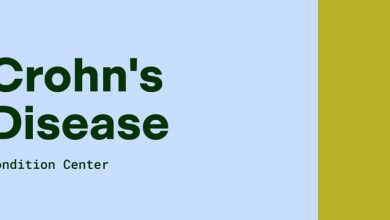Can Taking Benefiber Help You Lose Weight?

Dougal Waters/DigitalVision/GettyImages
Adding more fiber to your diet is a great way to support not only your overall health, but also your weight-loss efforts.
Here, learn whether Benefiber products can help you lose weight and all about the other health benefits of fiber from food and supplements.
Warning
Benefiber is not a weight-loss supplement. Do not take more than the recommended serving of Benefiber or any fiber supplement. Talk to your doctor before using any supplement to lose weight.
First, What Is Benefiber (and What Does It Do)?
Benefiber is a clear, tasteless, powdered fiber supplement made from wheat dextrin (a form of water-soluble fiber). One serving of Benefiber has about 3 grams of fiber, per the brand’s website.
Benefiber can be mixed into any drink (hot or cold) or added to foods like yogurt, applesauce or even baked goods. The brand also sells a prebiotic fiber supplement meant to keep you fuller longer, called Benefiber Healthy Shape.
Benefiber Original vs. Healthy Shape
| Original | Healthy Shape | |
| Serving size | 2 tsp | 3 1/4 tsp |
| Calories | 15 | 30 |
| Fiber | 3 g | 5 g |
| Gluten-free? | Yes | Yes |
| Sugar-free? | Yes | Yes |
If the powder version doesn’t appeal to you, you can buy a chewable or gummy version of Benefiber. The chewable tablets are sugar-free and come in different flavors, and the gummies are made with natural sugar.
Ways to Use Benefiber
There are a few different ways you can use Benefiber powder to up your fiber intake, including the following, per the brand’s website:
- Add it to your morning coffee
- Add it to your bottle of water
- Mix it into batter for baked goods, like muffins or bread
- Add it to wet foods like oatmeal, soup, yogurt or smoothies
If you’re trying to lose weight, keep your calorie goals in mind when adding Benefiber to already calorie-dense foods. If you’re unsure about how many calories you should eat per day, talk to your doctor or a registered dietitian.
Can Fiber Help You Lose Weight?
There are a few different reasons why fiber may help you lose weight. First, it’s hearty, helping you feel full faster. Second, it slows down your digestion so you feel full for longer, per the Harvard T.H. Chan School of Public Health. Both of these reasons may help you eat less overall, so you take in fewer calories.
While the AHA group lost a little more weight than the high-fiber group over 12 months (6 pounds vs. 4 pounds, respectively), the researchers concluded that adding more fiber to your diet, even without making other changes, is still effective for weight loss.
Tip
Add fiber to your diet slowly, over the course of a few weeks, to help your body adjust. Adding too much fiber too quickly can cause constipation, bloating, gas and cramping. Make sure you’re also drinking plenty of water, which helps the fiber absorb in your gut, per the Mayo Clinic.
Does Benefiber Help With Weight Loss?
So, adding more fiber to your diet may help you move toward your weight-loss goals, but can Benefiber in particular help you lose weight?
Ultimately, more clinical trials are needed to truly know whether Benefiber (or any wheat dextrin) products help people lose weight.
In the meantime, if you wish to use them, they are a relatively low-calorie, low-effort way to get more fiber into your diet.
Besides potentially helping your weight-loss efforts, getting enough fiber (in the form of food and/or supplements like Benefiber) has other health benefits. These include:
1. Better Digestion
One of the benefits of Benefiber is its effect on your digestion. When it’s in your digestive tract, it absorbs water and turns into a gel-like substance in your intestines (which slows down digestion). This can help firm up stool and allow it to pass more easily through your intestines, per the Harvard T.H. Chan School of Public Health.
And according to the Mayo Clinic, fiber may also lower your risk of hemorrhoids and other GI issues like diverticular disease — a condition where small pouches form in the colon and can get inflamed.
2. Heart Health
Eating fiber can also help your heart. In fact, the soluble fiber in Benefiber can help lower your blood cholesterol levels (in addition to avoiding foods high in cholesterol like red meat and cheese), per the Mayo Clinic.
Some studies have also shown that high-fiber foods can lower your blood pressure and reduce inflammation markers of heart disease, per the Mayo Clinic.
3. Blood Sugar Regulation
If you have diabetes, eating soluble fiber could help slow the absorption of sugar and help improve your blood sugar levels. And adding insoluble fiber to your diet could help reduce your risk of type 2 diabetes (along with other lifestyle changes like diet and exercise), per the Mayo Clinic.
4. Reduced Risk of Dementia
Eating fiber can help your brain in a couple of potential ways. Fiber helps reduce blood pressure, which could then possibly help reduce your risk of vascular dementia — a type of dementia caused by lack of blood flow to the brain, per the Alzheimer’s Association.
Dietary fiber may also generally reduce your risk of disabling dementia. Case in point: A February 2022 study in Nutritional Neuroscience, which followed more than 2,000 Japanese people over the course of 19 years, found that consistent soluble fiber intake was associated with a reduced risk of disabling dementia.
More studies need to be done to support this connection, though.
The Bottom Line
More evidence is needed to say that Benefiber products specifically help you lose weight.
But it is clear that eating more fiber in general can help you feel full and satisfied, possibly helping you stick to your diet plan and weight-loss efforts.
To get all the health benefits of fiber, start by adding high-fiber foods to your diet first, and then talk to your doctor or a registered dietitian about supplementing with things like Benefiber if you still can’t reach the recommended 25 to 38 grams per day.



